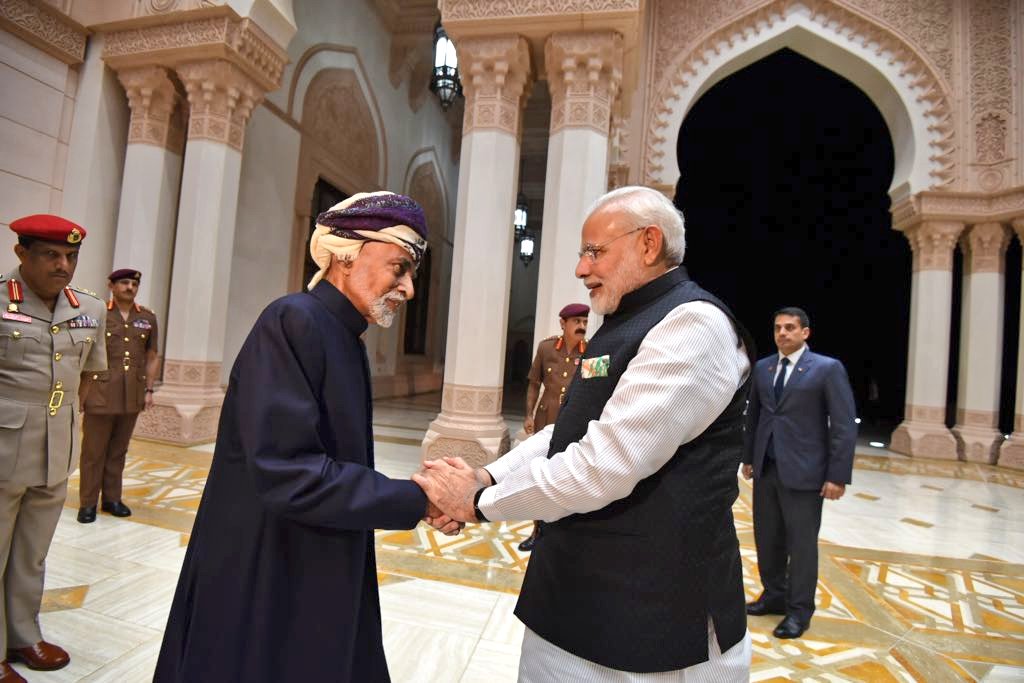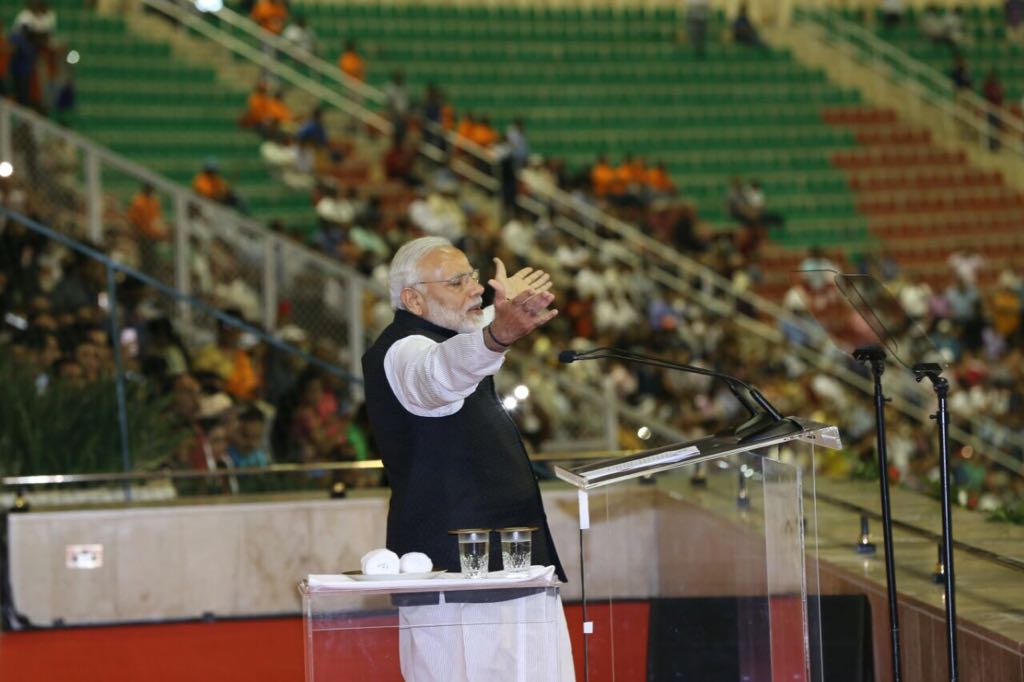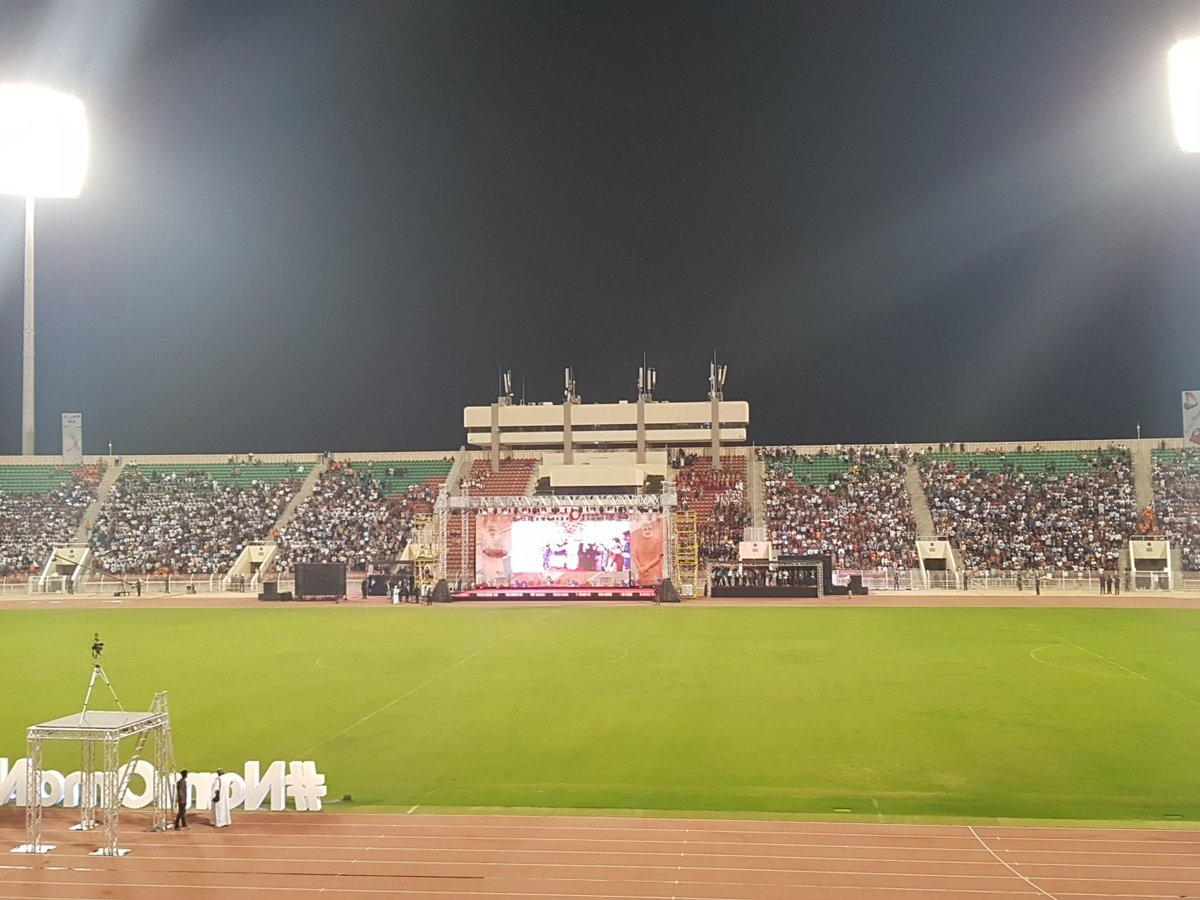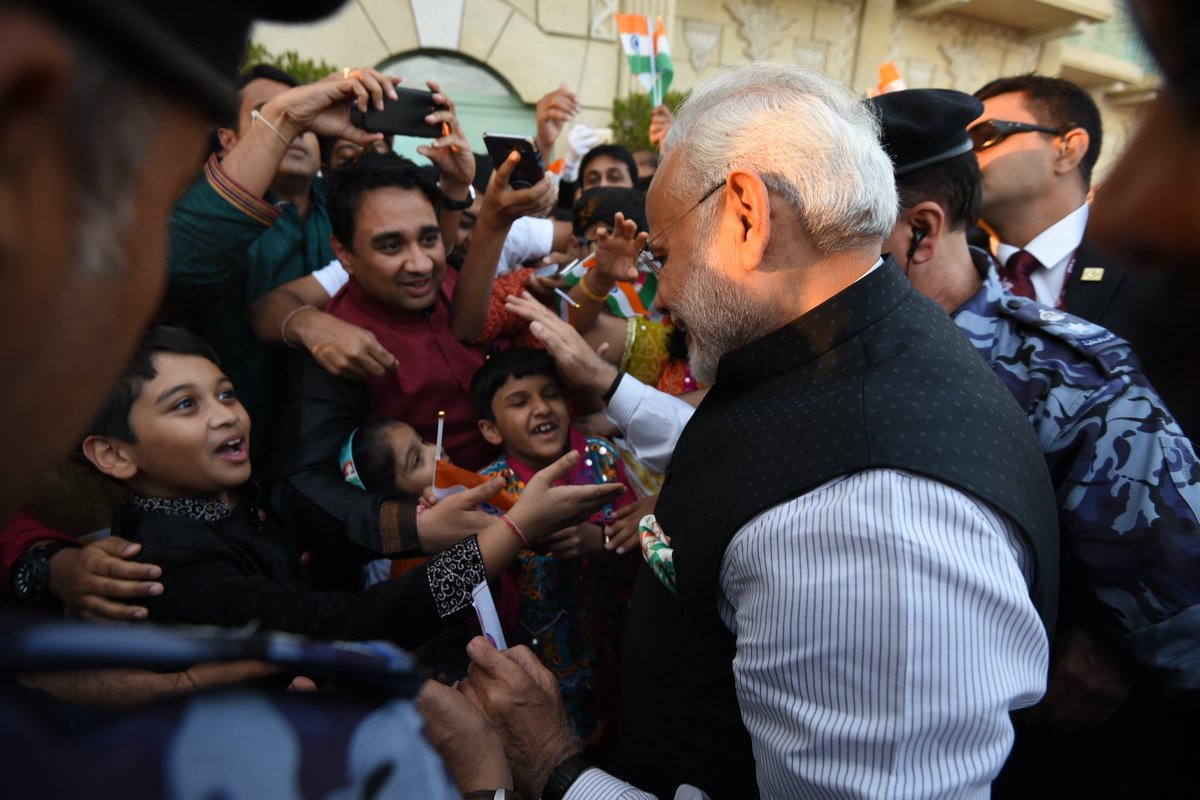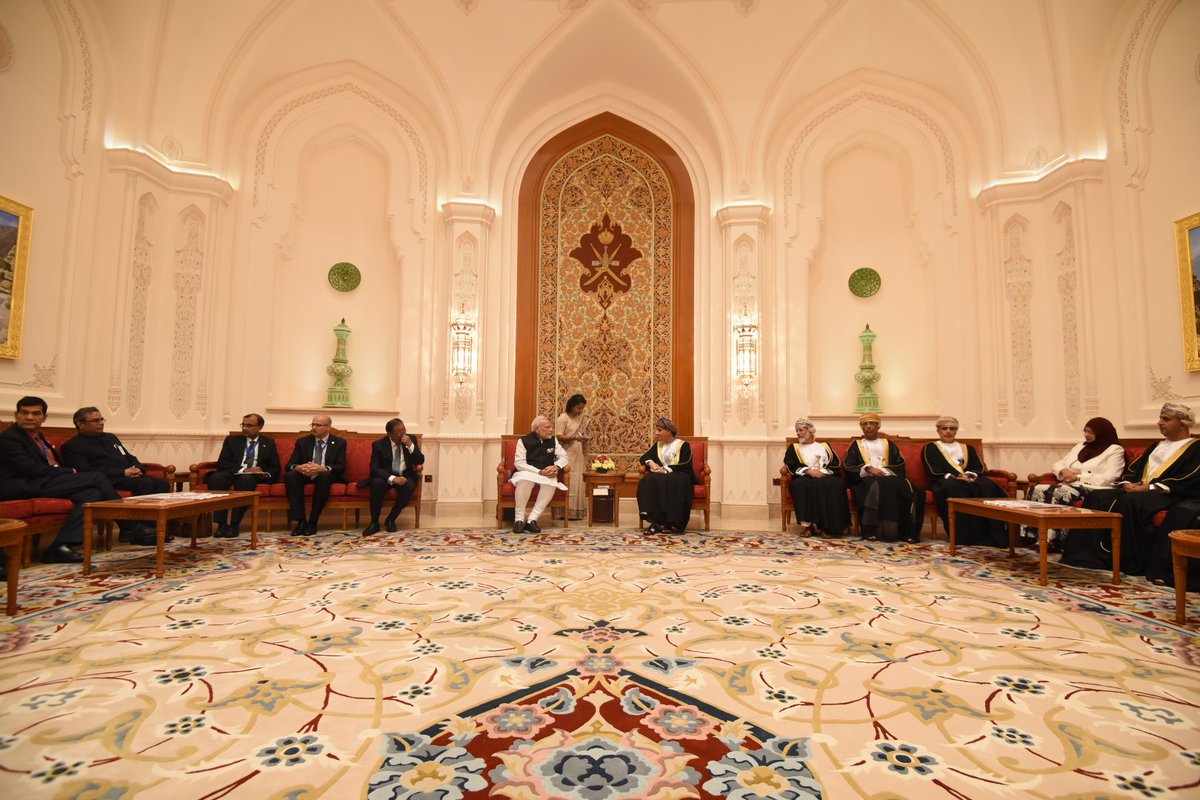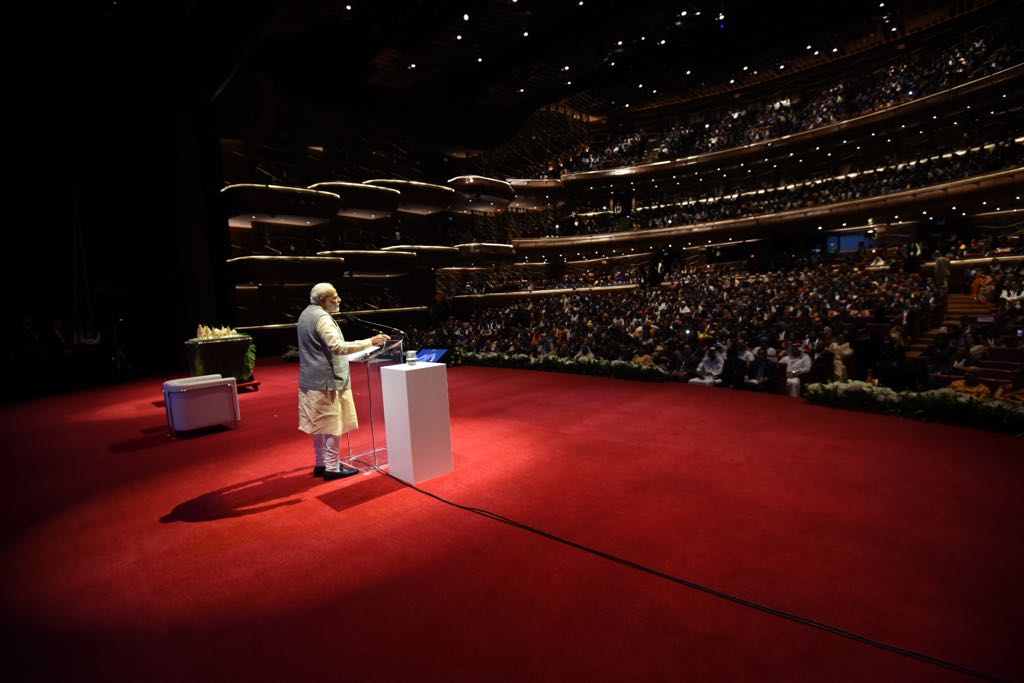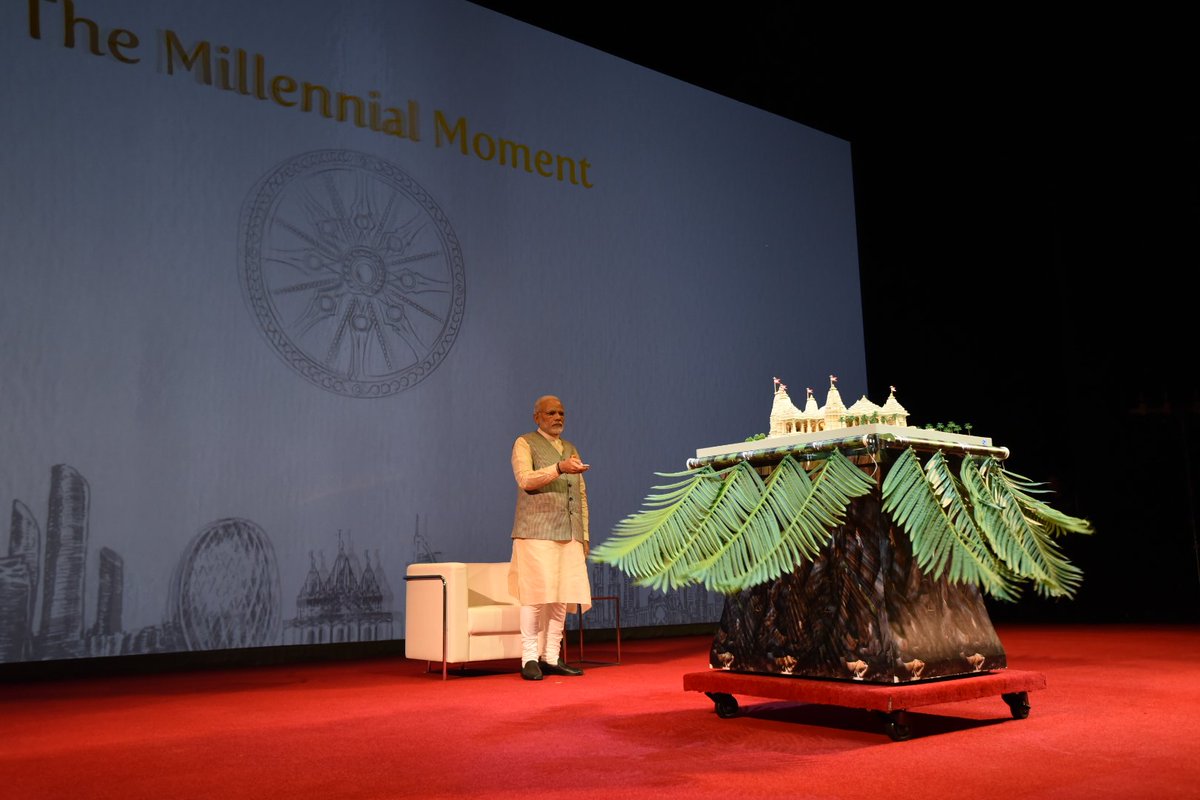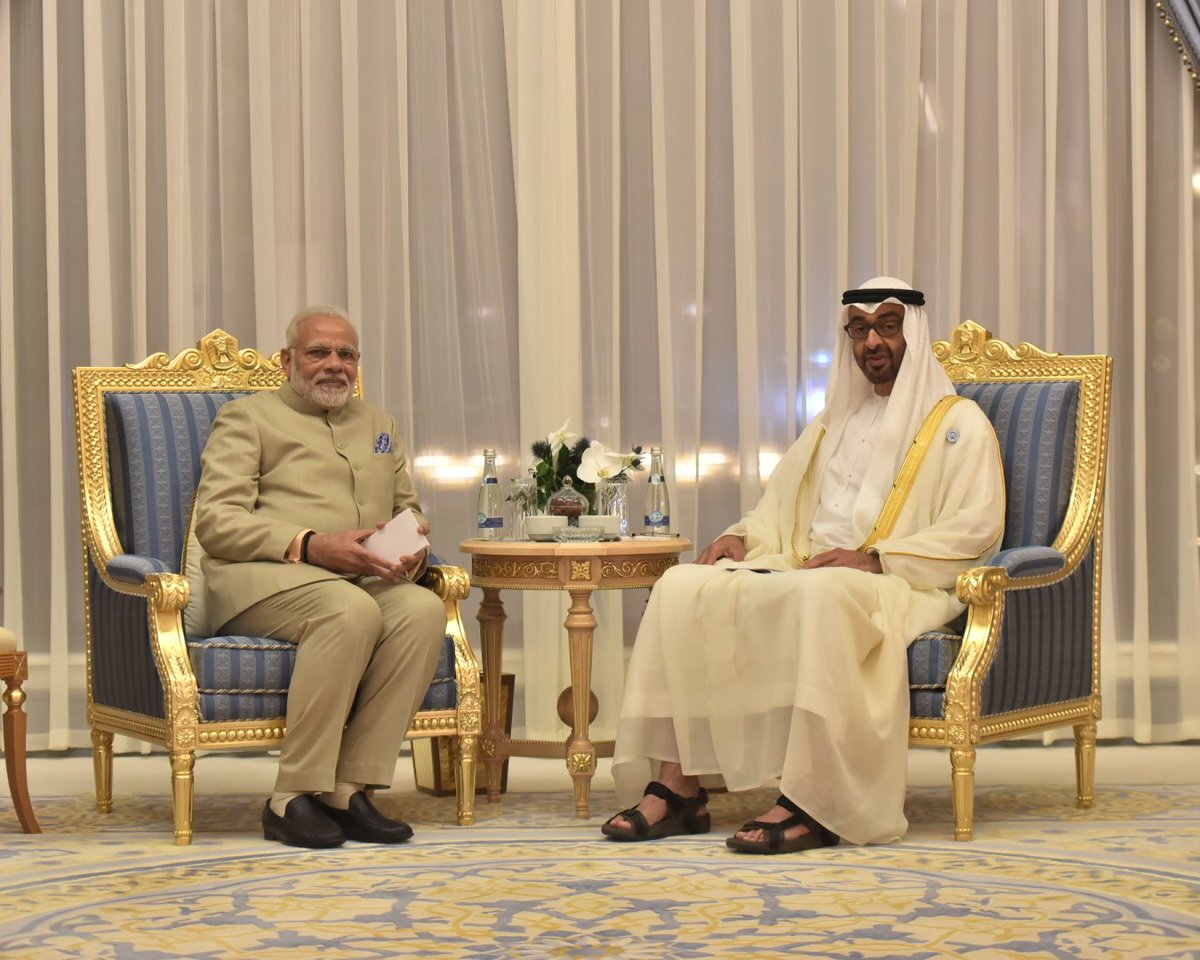“Oman’s strong and unbreakable bonds of friendship with India are only set to get stronger,” asserted Indian Prime Minister Narendra Modi while addressing a massive gathering of the Indian diaspora at the Sultan Qaboos Sports Complex in Muscat during his first visit to Oman.
The Prime Minister was in Oman on the last leg of his three-nation tour to the Middle East, which also include United Arab Emirates and Palestine.
“India and Oman are now going to embark on a new and stronger relationship with far greater momentum and energy than ever before,” said Modi during his address.
“Oman is our closest neighbour and we are honoured to have such a close relationship with them as well. It is a testament to His Majesty Sultan Qaboos bin Said’s wise policies that we share such a strong relationship,” said Modi.
“I give endless thanks to the government of Oman because our nations have shared a history that goes back to thousands of years. We may have had dark times between our nations but our respect has always stood the test of time,” he added.
To give a fillip to investment and economic development and diversification in India and Oman, Modi said, “To improve the relationship between Oman and India, we have set up many technological and energy-based institutions. It is vital and important that the relations between India and other nations stay strong, in terms of investment, agriculture, technology and business.”
“Today, we are building a new India,” stressed Modi. “All the Indians in Oman celebrate our successes and mourn our sorrows. Wherever we all may be, we are one nation.”
Touching a chord with Indian diaspora and the important role played by them in making Oman a modern nation-state, Modi said, “You have worked hard for this nation, you have spent your lives in this nation, and we are proud that the Oman government respects us all for this. We are proud that we are a nation that can find a place for ourselves and help others anywhere in this world.”
Meanwhile, Narendra Modi held wide-ranging talks with the Sultan of Oman as the two sides signed eight agreements, including pacts on cooperation in the field of defence, health and tourism.
“Charting out new frontiers in our bilateral relationship, PM @narendramodi led delegation-level talks with Sultan Qaboos of Oman. The two strategic partners discussed to strengthen cooperation in trade & investment, energy, defence and security, food security and regional issues,” Ministry of External Affairs spokesperson Raveesh Kumar tweeted.
India and Oman signed eight agreements, including an MoU on legal and judicial cooperation in civil and commercial matters. Both the countries also signed an agreement on mutual visa exemption for holders of diplomatic, special, service and official passports and an MoU on cooperation in the field of health, tourism and peaceful uses of outer space.
Prime Minister Narendra Modi also earned the respect of the Indian diaspora during his visit to the UAE where he addressed a massive gathering at Dubai Opera. He also gave the keynote address at the World Government Summit in Dubai where India was the guest of honour. He said regimes should pledge to use technology for development not destruction.
He also attended – through video conference – the laying of the foundation stone of the first Hindu temple in Abu Dhabi. The grand temple, built over 55,000 sq m land off Abu Dhabi Highway, is the first Hindu stone temple to be built in the Middle East.
The Indian Prime Minister also held wide-ranging talks with Crown Prince Mohamed bin Zayed Al Nahyan and signed key agreements related to the energy sector, railways, manpower and financial services.
India also gained a foothold in Abu Dhabi's massive oil resources, with a memorandum of understanding that gave a consortium of Indian companies 10 per cent stake in the offshore oil concession in Lower Zakum.
This was Modi’s second visit to the UAE, after his first in 2015. Various buildings in Abu Dhabi and Dubai were lit in the colours of the Indian flag to welcome the PM, who also attended a state banquet hosted by the Abu Dhabi Crown Prince.
More than nine million Indians work and live in the Gulf region. In Oman, they constitute the largest expatriate community.
During his trip to the Middle East, Modi also visited Palestine, becoming the first Indian Prime Minister to go there. He underlined New Delhi's support for a sovereign and ‘free’ Palestine in a peaceful manner.

